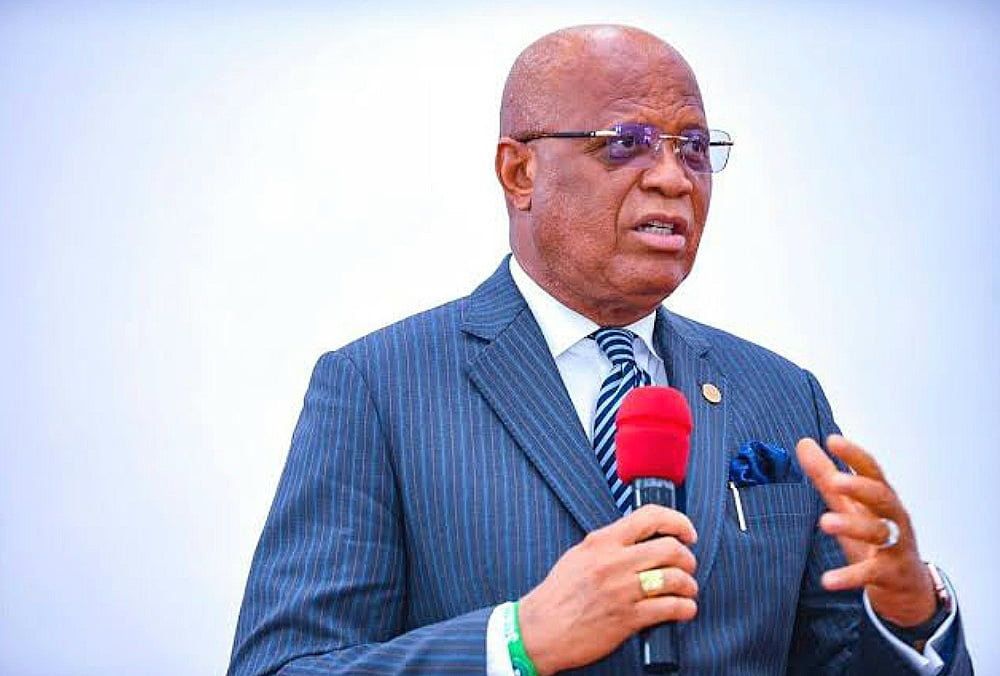Governor Umo Eno presented a robust ₦955 billion budget proposal for the 2025 fiscal year to the State House of Assembly on Tuesday. The budget, aptly named “Budget of Consolidation and Expansion,” represents a strategic three percent increase from the current year’s revised budget of ₦923.462 billion, reflecting the administration’s commitment to sustained growth despite national economic challenges.
The comprehensive fiscal plan demonstrates a clear emphasis on capital development, with ₦655 billion earmarked for capital expenditure while ₦300 billion is allocated to recurrent expenditure. This distribution underscores the government’s focus on tangible infrastructure development and long-term investment in the state’s future.
In his presentation, Governor Eno provided crucial insights into the economic assumptions underlying the budget. The fiscal framework is built on an oil benchmark of $75 per barrel, with an anticipated production rate of 2.12 million barrels per day, and factors in an exchange rate of ₦1,400 to the dollar. These parameters reflect a realistic assessment of the current global economic environment and its potential impact on state revenues.
The governor’s confidence in funding the budget stems from multiple revenue streams, including statutory allocations, derivation revenues, Value Added Tax (VAT), and an ambitious internally generated revenue (IGR) target of ₦80 billion. This diversified funding approach suggests a strategic effort to reduce dependency on any single revenue source while strengthening the state’s financial autonomy.
Reviewing the performance of the 2024 budget, Governor Eno highlighted remarkable achievements that set a strong foundation for the coming year. The state’s revenue performance showed exceptional progress, with recurrent revenue collection reaching ₦801.079 billion by October 2024, representing an impressive 168.6% of the pro-rated approved provision. Capital receipts stood at ₦100.522 billion, while capital project expenditure reached ₦328.003 billion, achieving 80% of the pro-rated provision.
The 2025 budget places significant emphasis on rural development, recognizing it as a crucial factor in achieving balanced statewide growth. The administration’s vision includes comprehensive development of rural communities through the provision of all-season roads, rural electrification projects, healthcare facilities, educational institutions, and market infrastructure. This focus aims to enhance rural living standards while addressing the persistent challenge of rural-urban migration.
In a notable expansion of the state’s economic footprint, the budget includes provisions for ambitious projects beyond state borders, such as the Ibom Towers development in Lagos. This external investment strategy signals the administration’s intent to diversify the state’s economic interests and create new revenue streams.
The governor’s commitment to transparency and accountability is evident in the planned institutionalization of performance tracking and reporting mechanisms. The implementation of key performance indicators (KPIs) across various sectors aims to ensure efficient resource utilization and achievement of set objectives.
Tourism, housing, and aviation infrastructure feature prominently in the budget, indicating the administration’s determination to position Akwa Ibom as a competitive destination for investment and tourism. These sectors are viewed as crucial drivers of economic growth and job creation in the coming year.
The presentation also highlighted the administration’s achievements in 2024, including significant strides in infrastructure development, healthcare delivery, education enhancement, and climate change initiatives. The governor’s emphasis on women entrepreneurship and job creation demonstrates a holistic approach to economic development.
Speaker of the State House of Assembly, Hon. Udeme Otong, responded to the budget presentation with assurance of thorough legislative scrutiny. This legislative oversight is crucial in ensuring that the budget’s provisions align with the peoples’ aspirations and contribute effectively to the state’s development agenda.
The 2025 budget proposal represents more than just financial allocations; it embodies a comprehensive vision for Akwa Ibom’s future. With its focus on rural development, infrastructure expansion, and economic diversification, the budget aims to position the state for sustainable growth while improving living standards across all communities.
As the budget moves through the legislative process, its successful implementation will depend on the continued collaboration between the government and citizens, as well as the effective management of resources in an evolving economic landscape. The governor’s call for collective action and unity of purpose resonates with the broader goal of transforming Akwa Ibom into a model state within Nigeria’s federation.



